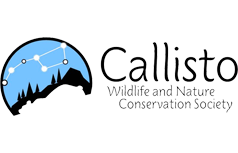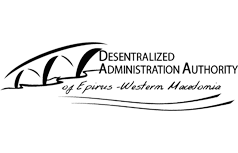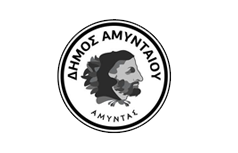In villages of Amyntaio and Florina, more than 50 dogs fell victim to poisoned baits in just 10 days (September 7-17).
Breeders and residents of Sklithro, Agrapiades Asprogeia, Aetos, Melitis, and Nymfaio villages informed the Environmental Organisations: Arcturos, Hellenic Ornithological Society, and Callisto that poisoned dogs have been found dead, out of which the majority were livestock guarding dogs and stray dogs, as well as some are still missing. The poisoning of animals with poisoned baits has reaches extremely alarming proportions in the area, while it is the first time that such intense poisoning incidents are recorded in such a short period of time and even within residential areas.
During August, residents of Sklithro and Amyntaio were moderately optimistic, as three (3) out of four (4) dogs that consumed poison baits were saved, thanks to the anti-poison first aid kits that were distributed free of charge in the framework of LIFE AMYBEAR project. Unfortunately, in the following days, the throwing of poison baits continued with even greater intensity, resulting in the mass dog deaths. Every day, information on new losses arrived. The “Poison Detection Team Action in Western Macedonia” of the Hellenic Ornithological Society with the help of “Ioli”, which is a specially trained dog of the Border Collie breed, and her operator, Mrs Victoria Saravia, conducted a thorough search in the area of the Sklithro Village, in order to find any poison baits left. However, the full investigation was not successful, as most of the poisoning cases took place within the settlement, where the specially training dog could not work due to its special training aimed in rural areas.
The use of poison baits is a barbaric practice that aims at killing wild animals, which cause damages in the livestock farming sector, beekeeping sector, and agricultural production, killing stray dogs or killing working dogs as a result of land use conflicts and disputes. At the same time this action is considered to be a criminal offense that carries severe administrative and criminal penalties. Furthermore, it is an extremely harmful practice for both the environment and biodiversity, while it poses serious threat to public health, as it can put in danger the lives of the residents and visitors of the area. In particular, with regard to large carnivorous animals and birds of prey, the illegal use and spread of poison baits in nature is considered to be one of the main threats to their survival in Greece. A typical example of this is the extreme reduction on the population of Asproparis, which was until very recently a common species of vulture in the Greek countryside.
The three (3) Environmental Organisations address an urgent appeal to the competent local authorities, as well as to the residents of these areas to deal with the scourge of poison baits.
To the competent authorities:
- To make every possible effort to facilitate the filing of a lawsuit by the citizens and the initiation of the pre-investigation process
- To immediately send the samples of poisoned animals or/and baits to the Centre of Veterinary Institutions of Athens, by carrying out the toxicological analyses, which will be used for the substantiation of the Court case.
To the residents of the countryside:
- To be informed about the possibility of filing a lawsuit in case of poising, following the steps as described in the “First Aid Guide to dogs that have been poisoned in the countryside” of the Hellenic Ornithological Society.
- Do not hesitate to break their silence and inform the local authorities – as some locals have already done- in case they anything that could help in the investigation of these mass poisoning events.
We would like to warmly thank the residents of Sklithro and Melitis, who informed us about the poisoning incidents and their subsequent cooperation with us.
Notes to the authors:
In this case the one(s) who placed the poisoned baits aimed at killing of dogs. In other cases these baits aim at wildlife animals either for revenge after the damage to their production, or as a way to avoid damage. However, this practice is NOT a SOLUTION, as:
- It is very possible that even if a wild animal is killed, other animals might continue to cause the same or similar problems/damages. Unlike killing, prevention measures are really effective, as they can reverse the behaviour of carnivores and in the long run there will be less damage.
- The illegal use of poison baits is very likely to kill other species besides the ones that were targeted, such as rare species of birds of prey and domestic animals, such as sheepdogs, hounds, pets, etc., as poison baits create an uncontrollable death chain.
- We must not forget that poisoned baits can be a serious danger to public health, especially were these are places in villages, like this case now, while their use is prosecuted.
The damages caused by different species of animals need be dealt with different and unique actions that will respond to the specifics of each situation.
The Hellenic Ornithological Society in the context of LIFE project entitled “LIFE for Asproparis” along with related actions of other projects such as the Green Fund, underline the importance to the problem of poison baits, in a central and a local level, by creating a network of stakeholders and the residents of the countryside against this illegal practice. At the same time, in collaboration with other environmental organisations and bodies, it is pushing for the planning and coordination of institutional changes and proposals to address the wildlife killings from poison baits, as well as highlighting the problem nationally and locally through information and education actions, while there are two Poison Bait Detection Teams with specially trained dogs in the regions of Thessaly and Western Macedonia.
Callisto, through the LIFE AMYBEAR projects, implements information activities of the local population by creating and distributing printed material and holding informal meetings on the catastrophic effects of the use of poisoned baits on the natural environment. In addition, with the free distribution of the anti-poison first aid kit and their correct use, the chances of rescuing a dog that has consumed the poisoned baits, until its transportations to the veterinarian and its treatment is completed, increase significantly. Moreover, by making use of its participation in older LIFE projects (LIFE EXTRA, LIFE PINDOS/GREVENA and LIFE ARCTOS/KASTORIA), and in the framework of its collaboration with the Hellenic Ornithological Society in the LIFE project entitled “LIFE for Asproparis”, Callisto has created and is coordinating the Shepherd Dog Exchange and Donation Network. This network has donated so far 60 shepherd dogs and has networked with 30 breeders in the area of LIFE AMYBEAR (Municipality of Amyntaio and Municipality of Florina).
Arcturos has given to breeders of the area Greek shepherd dogs, informs hundreds of breeders all over Greece about the measures that need to be taken in order to avoid the cause of damages from bears or wolfs, as well as what should be the actions when a dog consumes a poison bait. Furthermore, it constantly informs the visitors of the Bear Shelter (Nymfaio) and the Wolf Shelter (Agrapidies), as well as the local community, about the negative effects of illegal use and distribution of poisoned baits.
The action of the “Poison Detection Team Action in Western Macedonia” of the Hellenic Ornithological Society is funded by the Green Fund.
For more information:
Roula Trigou, Communication Coordinator of the Hellenic Ornithological Society | Tel.: 2108228704 (118) | rtrigou@ornithologiki.gr
George Theodoridis, Press and Communication Officer “Kallisto” | Tel.: 2310252530 (2) | communication@callisto.gr
Panos Stefanou, Comminication Manager “Arcturos” | Tel.: 6946001618 | pstefanou@arcturos.gr















